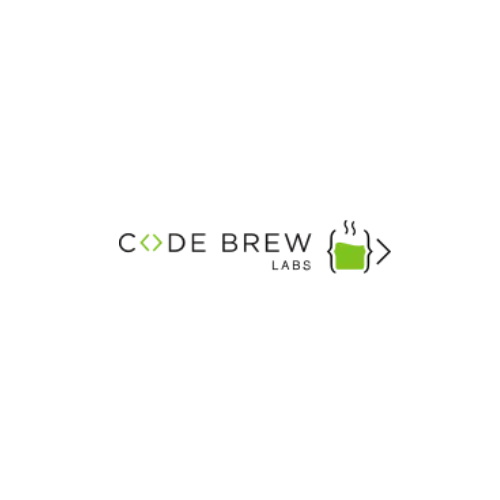Navigating the Legal Landscape: AI Regulation and Compliance in the EU for Software Development
 MArk Peterson
MArk Peterson
AI is rapidly transforming the way we live, and it’s already having a major impact on many industries. From personalized health care to logistics and supply chain optimization, AI has already shown its potential.
When it comes to European markets, AI is one of the most promising technologies. Countries and businesses are quickly adopting AI-driven software development as a way to innovate, grow, and improve the quality of life. But alongside the enthusiasm, there are also challenges to overcome. Many ethical and social issues need to be addressed, such as algorithmic biases, transparency, and the potential for job displacement. So, how can we leverage AI and mitigate its risks?
The AI Act has recently been amended by the European Union (EU), which highlights the need for EU regulation in the field of artificial intelligence (AI). For companies looking to enter the European software development market, understanding and following these rules is no longer an option, but an absolute necessity. In this blog, we’ll cover everything you need to know about the intersection between artificial intelligence (AI) and software development. We’ll also look at the changing landscape of AI regulations in the EU, as well as the importance of following government AI regulation standards.
Significance of AI Regulation in the EU
As the world becomes increasingly dependent on AI-powered software, the EU is taking a proactive approach to regulation and compliance. Understanding the benefits and risks of AI, the EU is working to create a strong framework based on ethical practices, transparency, and responsible deployment. AI compliance is essential for software development for several reasons.
Building Trust
The EU AI compliance aims to build trust between users, businesses, and stakeholders by making sure that AI systems are created and used ethically. This level of trust is important for the adoption of AI and the development of new AI solutions.
Mitigating Ethical Risks
The potential for bias, discrimination, and other ethical concerns grows as AI becomes increasingly integrated into daily life. The EU’s regulations guide to mitigate these risks and ensure AI systems are used fairly and responsibly.
Compliance and Sustainability
The European Union (EU) has set clear compliance requirements for artificial intelligence (AI) systems to create an ecosystem that is sustainable and responsible. This will enable businesses to manage risks, enhance cybersecurity, and promote transparency. Understanding the importance of compliance in AI helps businesses to manage legal issues, and encourages the responsible development and adoption of AI. The EU’s AI regulation not only serves as a legal requirement for businesses, but also as a strategic investment for the long-term success of AI and its positive impact on society. By following the rules set out in the EU regulation, businesses can help build a future where all users of AI-powered systems benefit from ethical and sustainable solutions. An AI system must pass a conformity assessment to ensure compliance with the rules. Upon passing the assessment, the system is registered in the European Conformity (CE) marking to demonstrate compliance. If the system is subject to significant changes, such as new data training or the addition/removal of features, the system must be re-certified and re-entered into the EU database.
Exploring the EU AI Regulation: Guiding Through the Regulatory Landscape for AI-Powered Software Development
The EU has set clear compliance requirements to ensure that the AI ecosystem is sustainable and responsible. This allows businesses to manage risks, improve cybersecurity, and increase transparency. By understanding the importance of compliance with AI, businesses can manage legal issues and promote the responsible development and deployment of AI. Not only is AI compliance a legal requirement for businesses, but it is also a strategic investment for the long-term success of AI and its positive impact on society. By following the regulations in the EU for AI development, businesses can help build a future where everyone benefits from AI-powered solutions ethically and sustainably. The EU has implemented several important regulations that have had a significant impact on the world of artificial intelligence. These regulations in custom software development services are designed to guarantee ethical AI development that can protect individuals' privacy and mitigate potential risks. Let’s take a look at some of the key EU compliance for AI development.
1. General Data Protection Regulation (GDPR)
AI compliance is not just a legal requirement for businesses, it is a strategic investment for the long-term success of AI and its positive impact on society. By setting clear compliance requirements, businesses can manage risks, enhance cybersecurity, and promote transparency. By understanding the value of AI compliance, businesses can navigate legal issues and promote the responsible development and adoption of AI. By following the EU's AI regulation, businesses can build a future where everyone benefits from ethical and sustainable AI solutions. GDPR is a key regulatory framework for the development of artificial intelligence (AI) in the EU. It aims to protect personal data and enforce strict measures to make sure that AI applications are transparent and accountable. In addition, GDPR emphasizes the importance of fairness and impartiality in AI systems. This regulation requires the use of DPA’s, which measure the risks and implications of AI projects.
2. Artificial Intelligence Act
The European Union (EU) has set clear compliance requirements for the development and deployment of artificial intelligence (AI) systems, to create a sustainable, responsible AI ecosystem. By meeting these compliance requirements, businesses can manage risks, enhance cybersecurity, and promote transparency. Understanding the significance of AI compliance allows businesses to manage legal issues, and promotes the responsible development and adoption of AI. Not only is AI compliance a legal requirement for businesses, but it is a strategic investment for the long term success of AI and its positive impact on society. By meeting the requirements of the EU's AI regulation, businesses can help build a future where AI-powered systems benefit everyone ethically and sustainably. In the context of AI compliance, the Artificial Intelligence Act (AI Act) is a regulatory structure designed to promote responsible, explainable, and transparent development and deployment of AI systems. The AI Act outlines requirements for high-risk systems and their associated compliance timelines, as well as practical considerations. By establishing criteria for transparency and oversight, the Act strikes a balance between fostering innovation and protecting fundamental rights. It paves the way for ethical AI practices in the European Union.
3. Product Liability Directive
The product liability directive (PLD) is a framework that puts AI product safety and the well-being of end-users at the center of everything. It places developers in charge of managing risks related to AI products and emphasizes the need for proactive product safety measures. Developers involved in product development are encouraged to look into risk management approaches to improve overall AI product safety. By following the PLD, developers can help create a safe and dependable AI environment in the EU. Understanding EU AI regulation will help businesses navigate the ever-changing AI development landscape, making sure compliance is met, ethical practices are followed, and AI technologies are deployed responsibly.
Understanding the AI Act and its Impact
The AI Act classifies AI systems into four risk categories: unacceptable risk, high risk, limited risk, and minimal risk. "Unacceptable risk" includes systems that manipulate human behavior in a way that is detrimental or use real-time facial recognition in public spaces. "High-risk" systems, which require the strictest compliance measures, encompass areas like recruitment, credit scoring, and critical infrastructure. For these high-risk systems, the AI Act outlines various obligations for developers, including:
Risk Assessment and Mitigation: Companies must conduct comprehensive risk assessments to identify and mitigate potential risks associated with their AI systems.
Transparency and Explainability: The AI Act emphasizes the need for transparent and explainable AI. Developers must provide information on how the AI system arrives at its decisions.
Data Governance: Strict data governance measures are required, ensuring data used to train and operate AI systems is collected and used ethically and by the General Data Protection Regulation (GDPR).
Compliance for Dubai-based Software Development Companies
While your company may be headquartered in Dubai, if you plan to offer AI-powered software solutions in the EU, compliance with the AI Act becomes crucial. Here are some key steps to consider:
Identify Your Risk Category: The first step is to determine the risk category of your AI system based on its intended use. This will dictate the level of compliance required.
Develop a Compliance Strategy: Based on the risk category, establish a comprehensive compliance strategy that addresses risk assessment, data governance, transparency, and human oversight.
Seek Legal Expertise: Consulting with legal professionals specializing in EU AI regulations is highly recommended.
Conclusion
The EU AI Act presents both challenges and opportunities for software development companies in Dubai. By proactively understanding and complying with these regulations, you can ensure your AI solutions reach the European market while maintaining ethical and responsible development practices. This not only fosters trust with your European customers but also positions your company as a leader in the responsible development of AI technologies.
Remember, navigating the legal landscape of AI regulation requires ongoing vigilance. Stay updated on the latest developments and interpretations of the AI Act to ensure your software development company in Dubai remains compliant and thrives in the ever-evolving world of AI.
FAQs
Q. How does GDPR impact AI development and usage in the EU?
The GDPR has a significant impact on the development and use of Artificial Intelligence (AI) in the European Union. The regulation places a strong emphasis on the protection of personal data, transparency, and accountability of AI applications. GDPR compliance requires the implementation of DPA (Data Protection Impact Assessment) on AI projects in order to address the issues of algorithmic bias.
Q. Are there sector-specific AI regulations in the EU, such as in healthcare or finance?
While the EU AI regulation provides a broad framework for the regulation of high-risk AI systems, specific industries may have specific regulations that are tailored to their specific needs and challenges. For instance, the healthcare sector may have additional rules in place to ensure that AI is used ethically and responsibly in healthcare applications. The finance sector may also have specific rules in place for the use of AI for financial services. Therefore, businesses need to be aware of the general AI regulations (e.g. EU AI Act) as well as any sector-specific regulations that are relevant to their industry.
Q. What considerations should CEOs and CTOs take into account when developing AI products in compliance with EU regulations?
To meet EU regulatory requirements for Artificial Intelligence (AI), the priority for Chief Executive Officers (CEOs) and Chief Technology Officers (CTOs) is to stay up-to-date on the latest legislation. This includes compliance with transparency guidelines and timelines, as well as ethical guidelines, transparency and human oversight, and data privacy practices, as well as risk management, legal advice, and active involvement in industry collaborations to develop AI strategies that meet EU regulatory and ethical requirements.
Subscribe to my newsletter
Read articles from MArk Peterson directly inside your inbox. Subscribe to the newsletter, and don't miss out.
Written by

MArk Peterson
MArk Peterson
My name is Mark, I've been working with Code Brew for over 5+ years now. The exceptional team delivers smooth processes, personalized solutions, and remarkable attention to detail. Code Brew Labs, is the name for the top software development company. They have successfully developed a well-functioning app with zero issues. The team was responsive, prompt, and communicative via chat apps. Their professionalism and eagerness to help made them stand out. I would recommend Code Brew Labs to everyone out there.